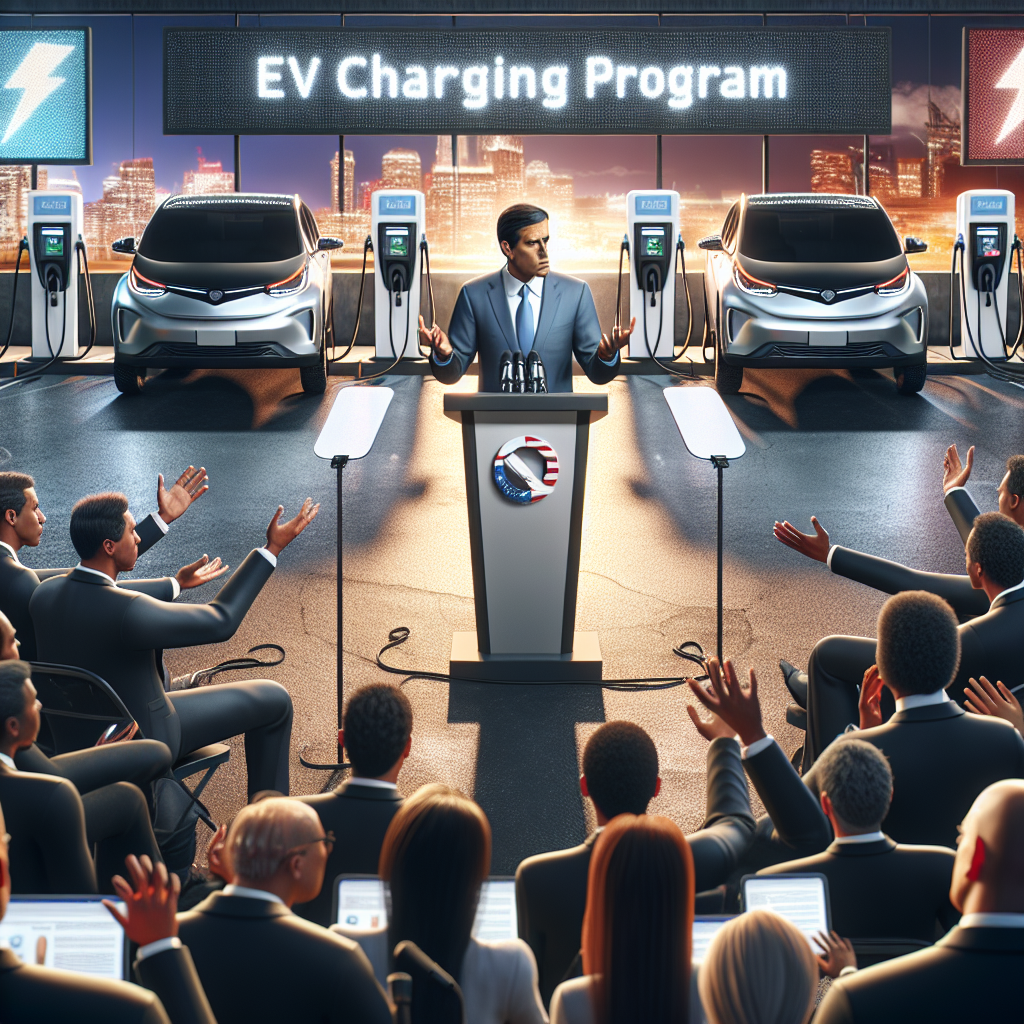The recent directive from the administration has sent electric vehicle (EV) charging projects spiraling into chaos, throwing a wrench into a national program aimed at promoting sustainable transportation. This abrupt turn of events has left stakeholders in the EV industry grappling with uncertainty and disruption. The implications of this decision extend far beyond individual projects, impacting the broader momentum towards a cleaner and more efficient transportation sector.
The administration’s directive has created a cloud of uncertainty over the future of EV charging infrastructure, a critical component in the widespread adoption of electric vehicles. Without a robust and reliable charging network, the transition to electric mobility faces significant hurdles. This setback not only affects the EV industry but also has broader implications for climate change mitigation efforts and energy independence.
Investments in EV charging projects, which were poised to accelerate the deployment of charging stations across the country, are now facing delays and cancellations. The sudden disruption has eroded confidence among investors and industry stakeholders, casting a shadow over the viability of future projects. This uncertainty could impede the growth of the EV market and hinder progress towards reducing greenhouse gas emissions from the transportation sector.
At the same time, the administration’s directive underscores the importance of long-term policy stability and support for clean energy initiatives. A consistent and coherent regulatory framework is essential to foster innovation, attract investments, and drive the transition to a low-carbon economy. By disrupting the EV charging program, the administration risks undermining the progress made towards decarbonizing the transportation sector and achieving climate goals.
In light of these developments, industry stakeholders and policymakers must work together to address the challenges facing EV charging projects. Collaboration and dialogue are essential to navigate the current uncertainty and chart a path forward for sustainable transportation. It is imperative to reaffirm the commitment to clean energy and create an enabling environment for the growth of the EV market.
Despite the disruptions caused by the administration’s directive, the momentum towards electrification in transportation remains strong. The demand for electric vehicles continues to rise, driven by technological advancements, environmental concerns, and shifting consumer preferences. As the EV market expands, the need for a reliable and accessible charging infrastructure will only become more pressing.
In conclusion, the administration’s directive has injected uncertainty into the national EV charging program, disrupting the progress towards a cleaner and more sustainable transportation system. Industry stakeholders, policymakers, and investors must collaborate to overcome these challenges and reaffirm their commitment to advancing clean energy solutions. By navigating this turbulent period with resilience and determination, the EV industry can continue to drive towards a future powered by electricity.

